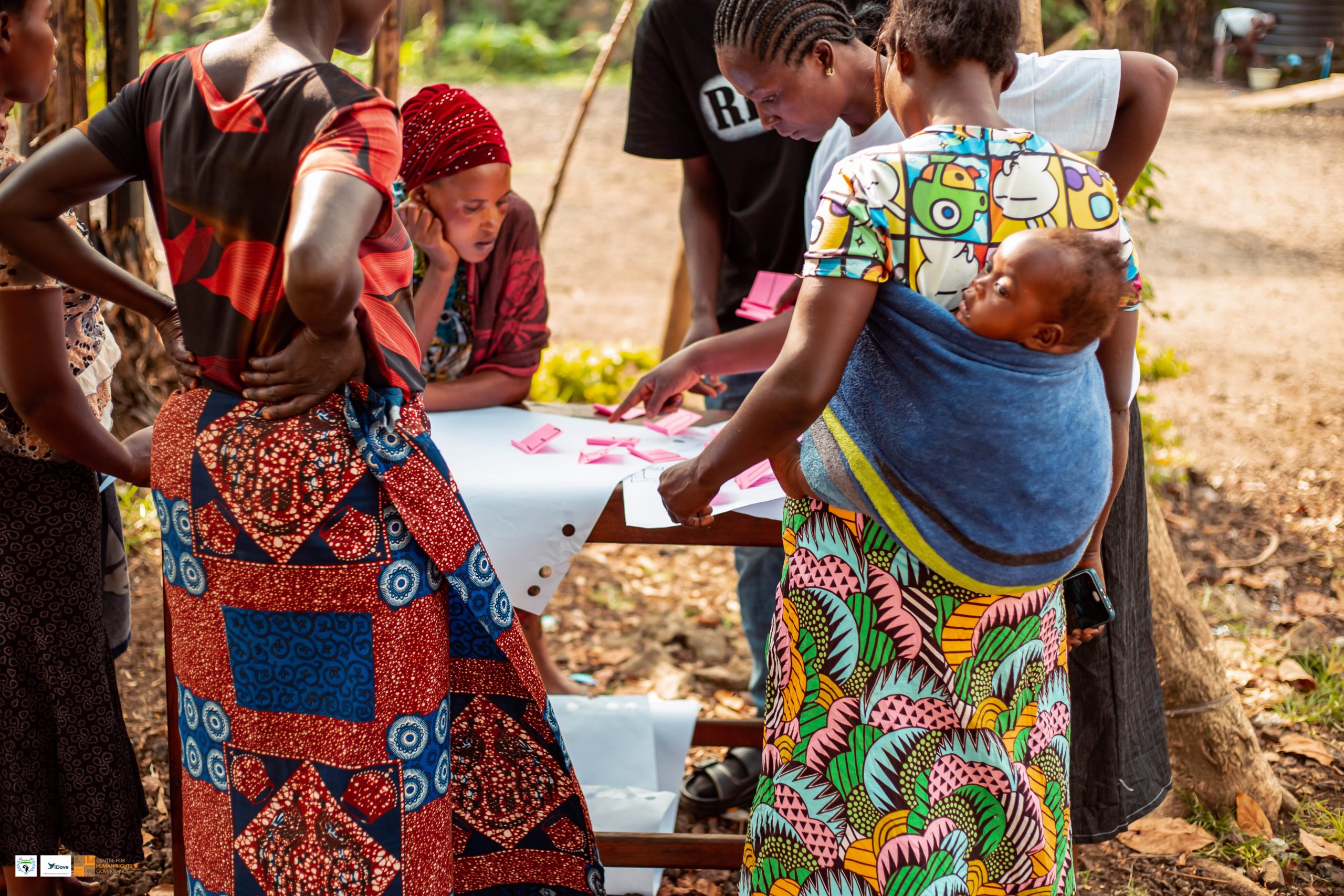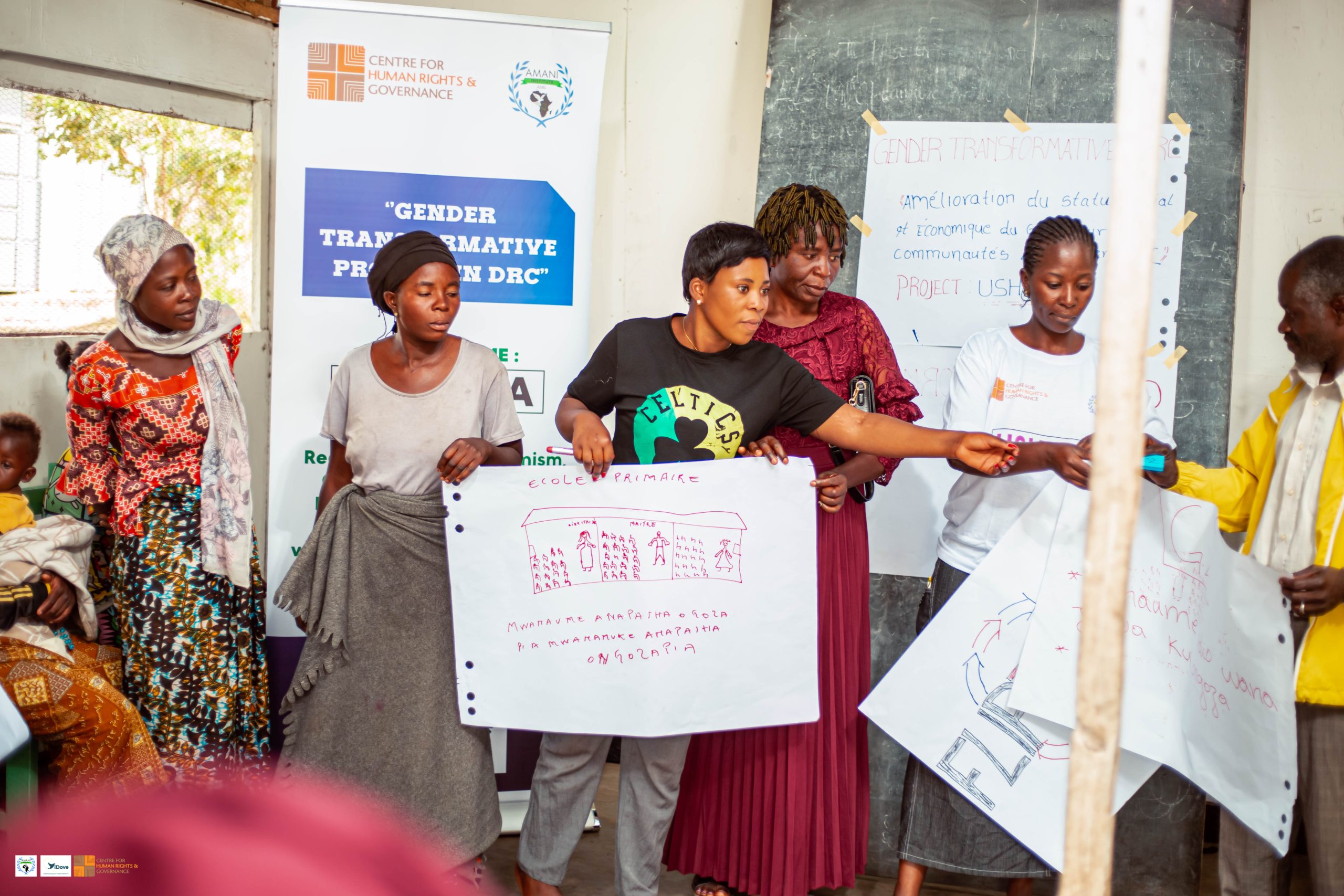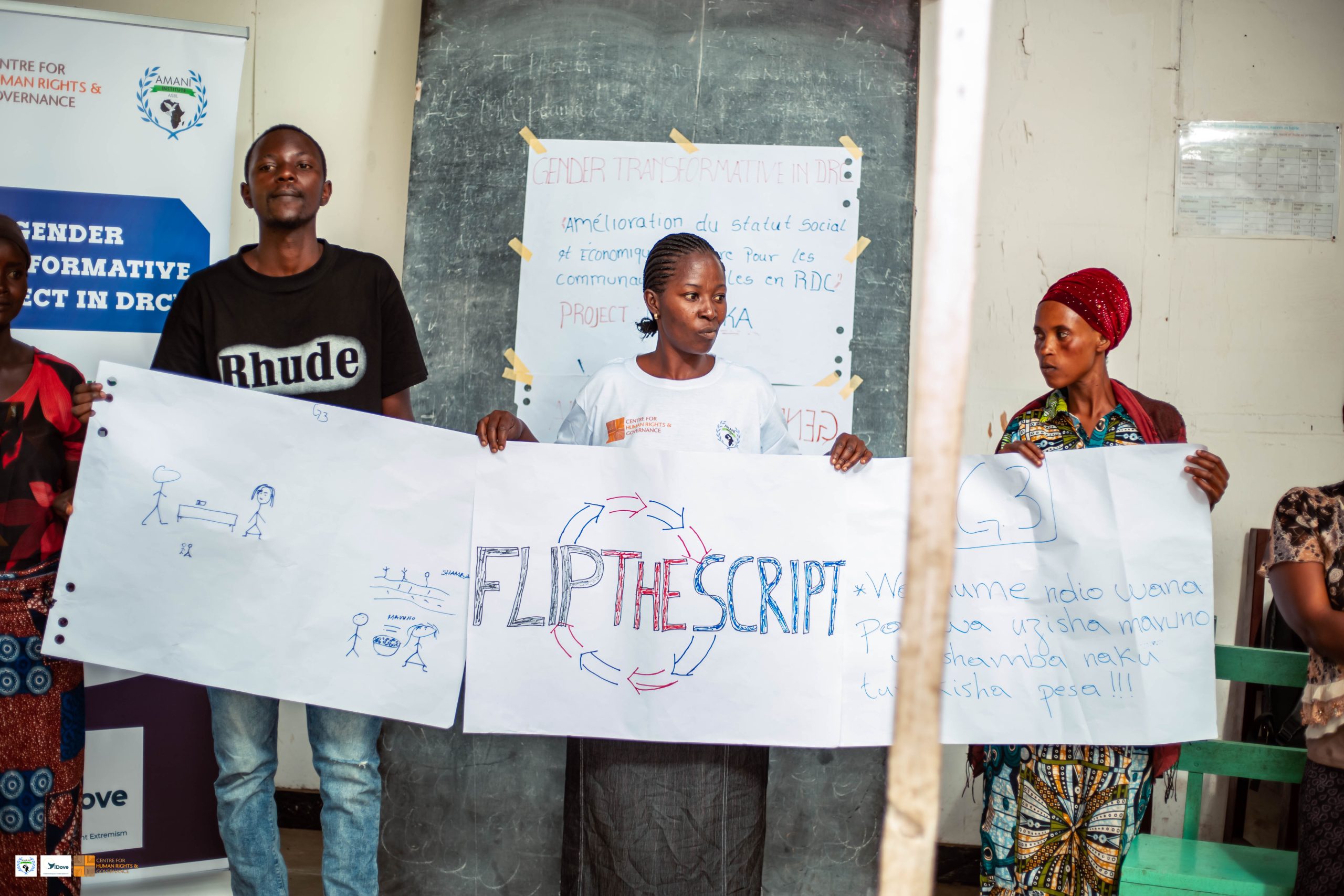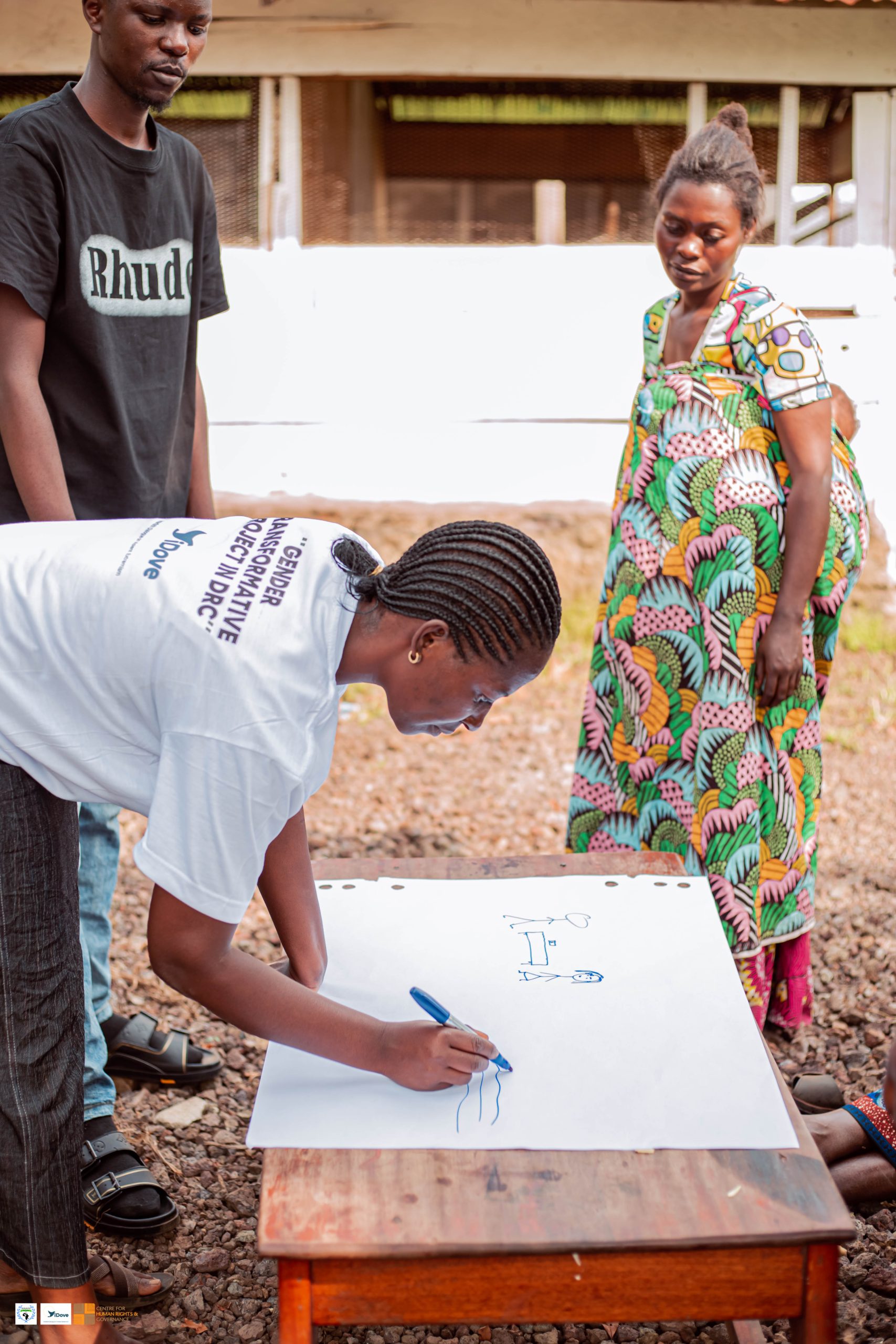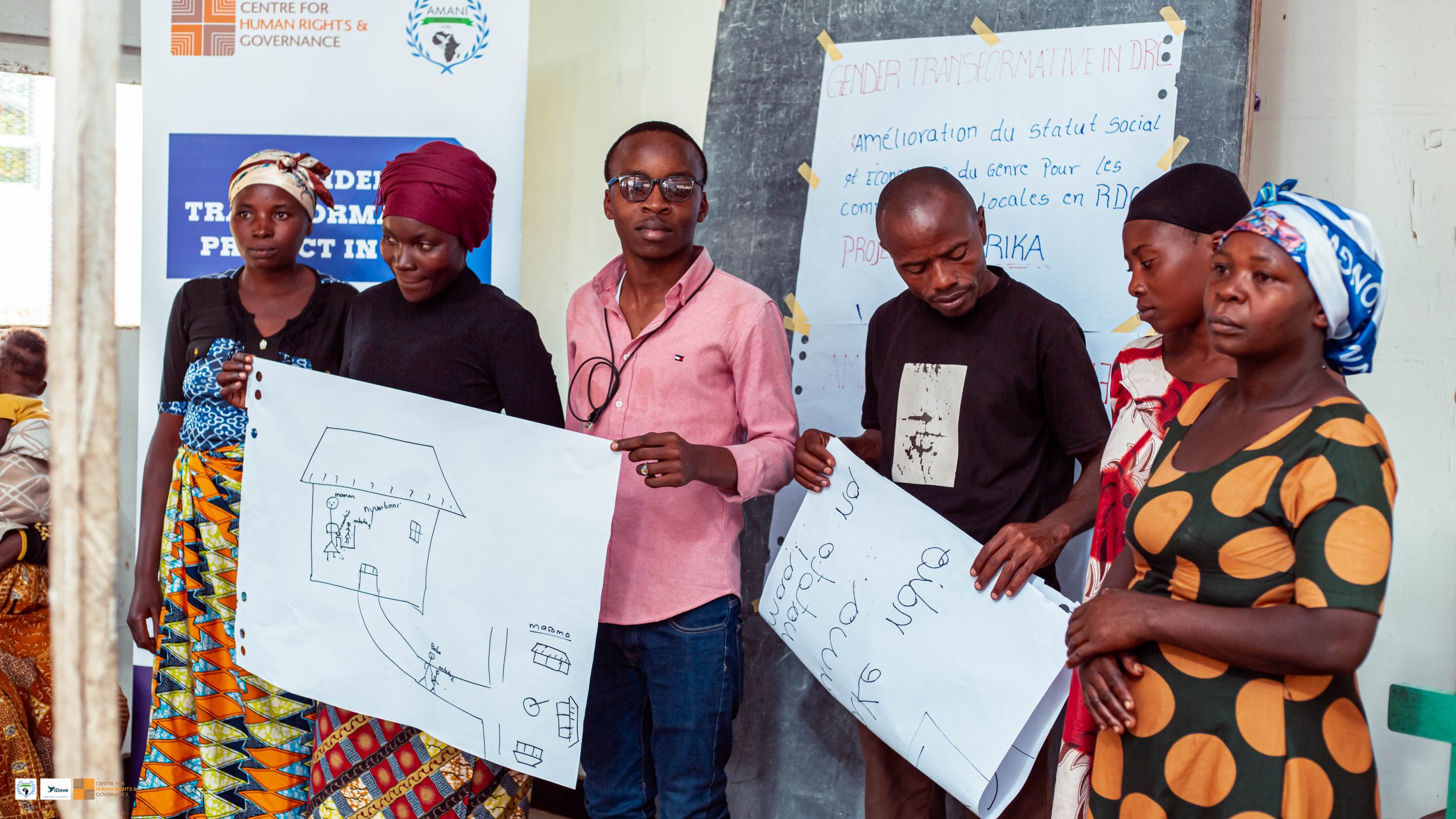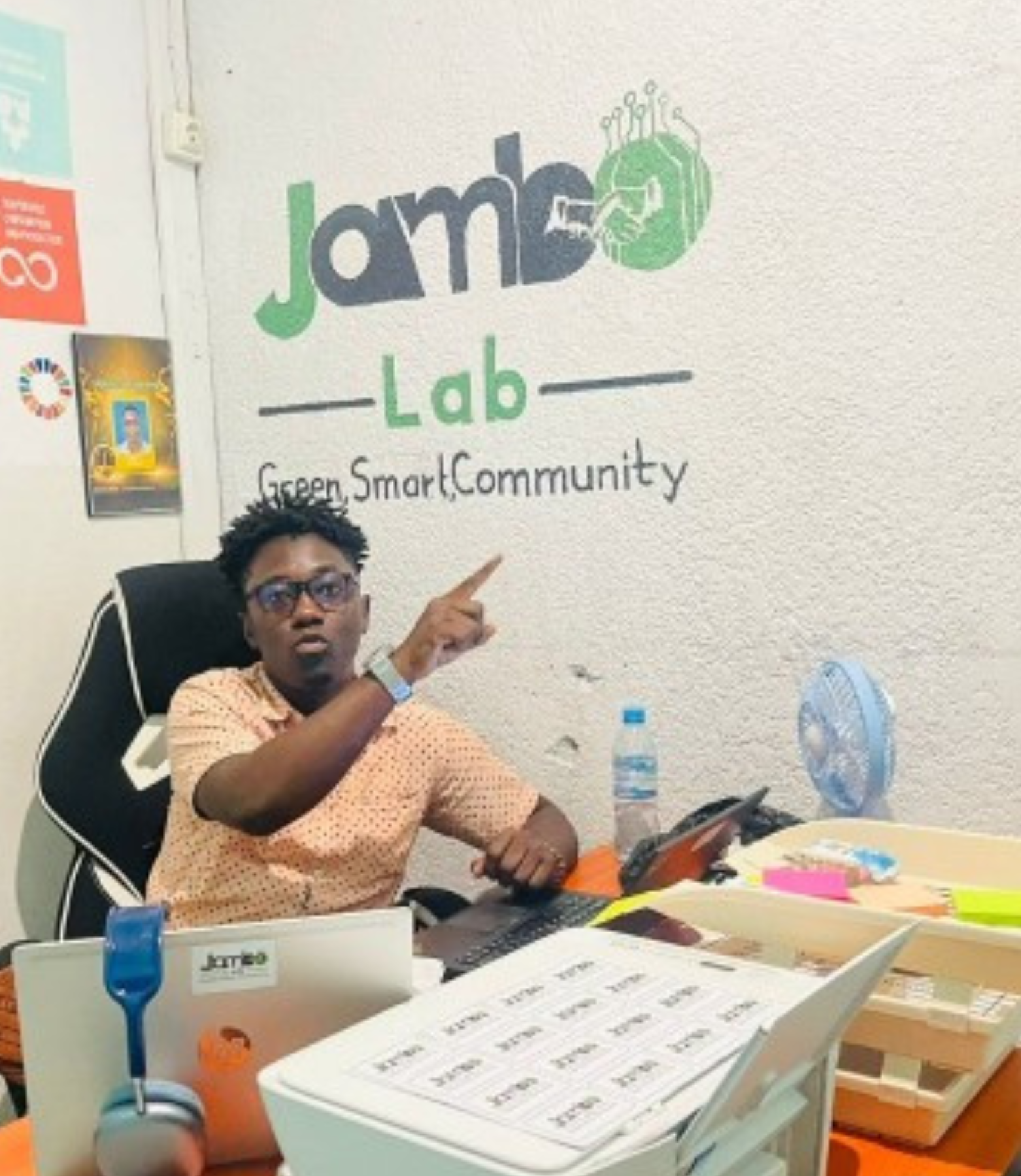Beyond Conflict:
The USHIRIKA Project’s Path to Gender Justice and Social Cohesion
iDove project implemented by Centre for Human Rights and Governance – Solace in the region of Nyiragongo and North Kivu in the Democratic Republic of the Congo
Armed conflicts and violent extremism have rapidly intensified in areas such as Lubero and Ituri, with young people increasingly mobilizing to support both the Democratic Republic of Congo armed forces and rebel groups like the M23. Gender inequality and gender-based violence are deeply intertwined with the ongoing conflict and violent extremism. Women and girls are disproportionately affected by sexual violence, which is used as a tool of control and terror by armed groups. Entrenched patriarchal norms and rigid gender roles exclude women from education, conflict resolution, and political participation, limiting their ability to contribute to peacebuilding efforts. Displanced women and girls are especially vulnerable, facing disrupted access to education, health services, and justice, further perpetuating inequality and violence.
Community dialogues facilitated by religious leaders in conflict zones have shown promise in resolving local disputes, but the challenges of gender-based violence and the exclusion of women from decision-making processes remain significant obstacles to achieving lasting peace and stability in the DRC.
Women peacebuilders analyzing the drivers of armed conflict in their communities. Photo: Centre for Human Rights and Governance–Solace. 2024.
Despite the gravity of the situation, there continues to be a disturbing lack of attention and adequate prevention of the violent extremsim crisis, further marginalizing the voices and experiences of those affected, particularly women and girls.
To address this problem, the USHIRIKA Gender Transformative Project aims to reduce gender-based violence, prejudices and customary practices directed against women in target communities by tackling the root causes of violent extremism, breaking the cycle of marginalized and violence, and thus strengthening the resilience and stability of communities.
Group work presenting FliptheScrit approach to challenge the narrative that support harmful traditional practices and gender inequality. Photo: Centre for Human Rights and Governance–Solace. 2024.
Women presenting on inequalities of gender responsibilities in their communities. Photo: Centre for Human Rights and Governance–Solace. 2024.
The Project Goals
1.
Ensuring PVE actions are more effective and inclusive and transform harmful gender norms to promote gender equality.
2.
Strengthening the resilience of communities to counter violent extremism and strengthen social cohesion.
3.
Improving SGBV prevention and response mechanisms in target communities.
The presentation on how small businesses in communities can improve social and economic status of women. Photo: Centre for Human Rights and Governance–Solace. 2024.
To achieve these goals, USHIRIKA gender transformative project is implementing three main activities namely peacebuilding and PVE training, two sessions on improving social and economic gender status, advocacy.
Reimagining Peace: Youth Empowerment and Gender Equality in Liptako’s PVE Mission
Turning the Tide: Nawiri’s Gender-Inclusive Approach to Countering Extremism in Kinango
Meet the USHIRIKA iDove
Project Team
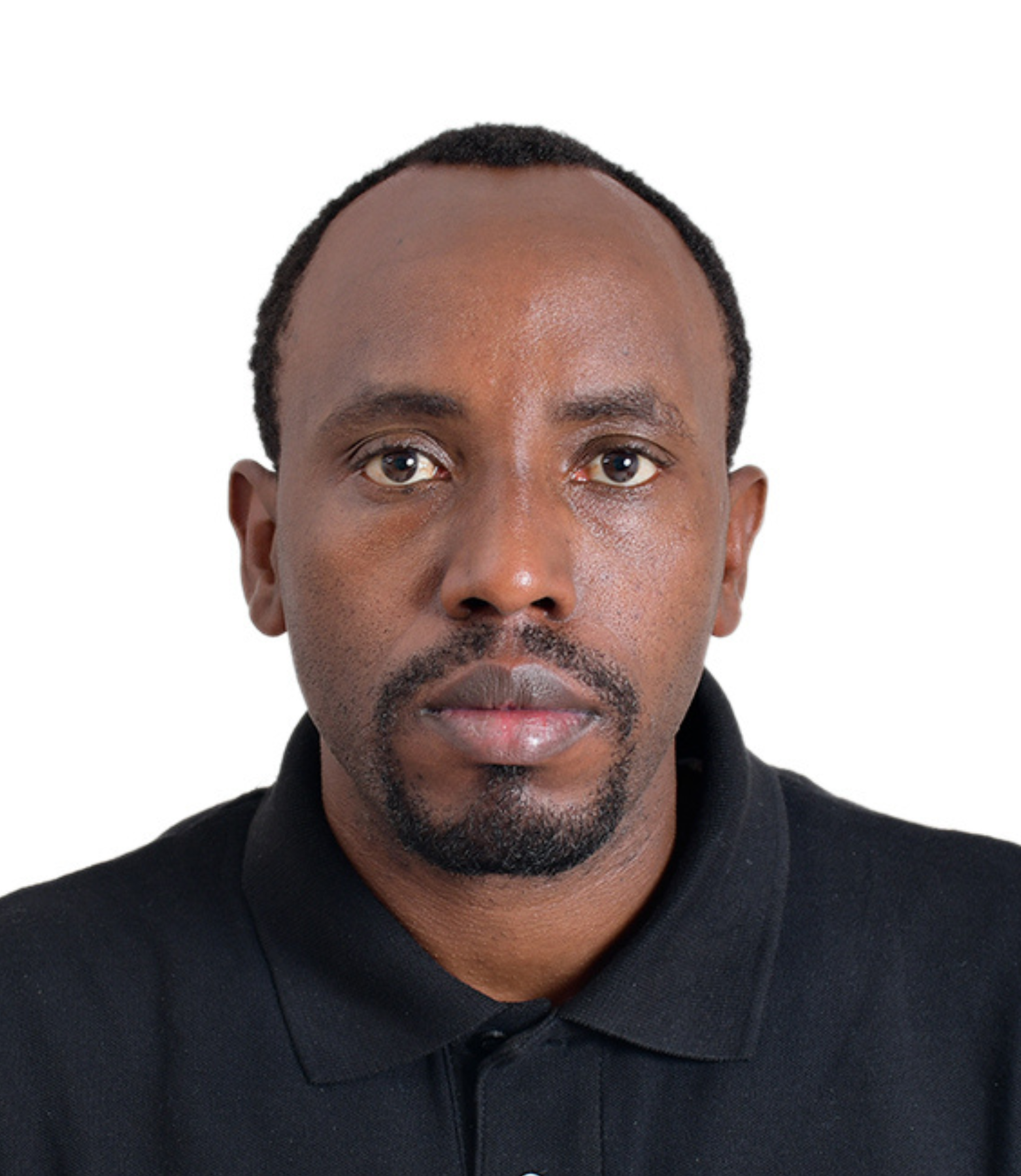
Justin Mucuranyana
Executive Director, Centre for Human Rights & Governance – Solace
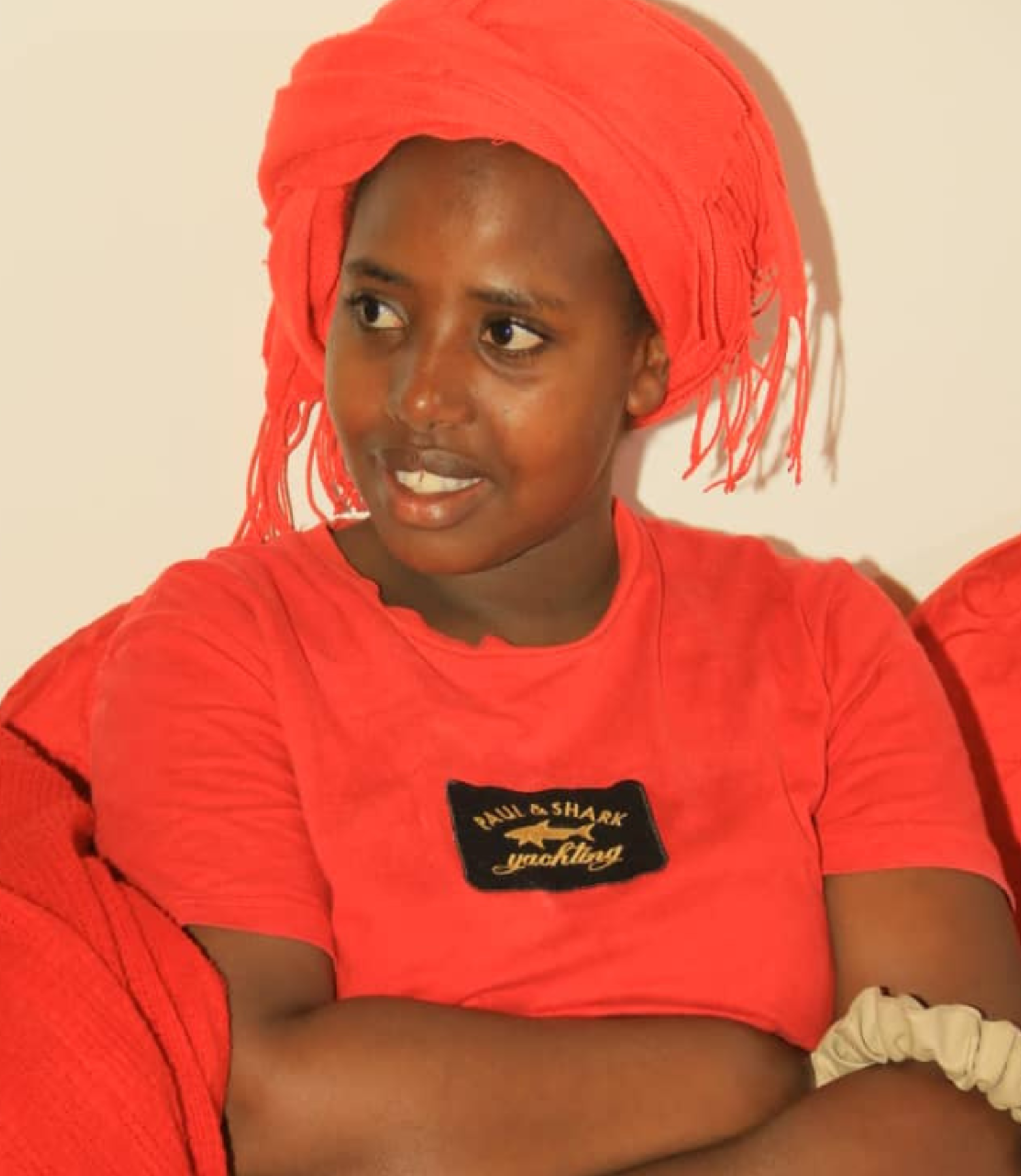
Dulce Murefu
Project Accountant, iDove programme
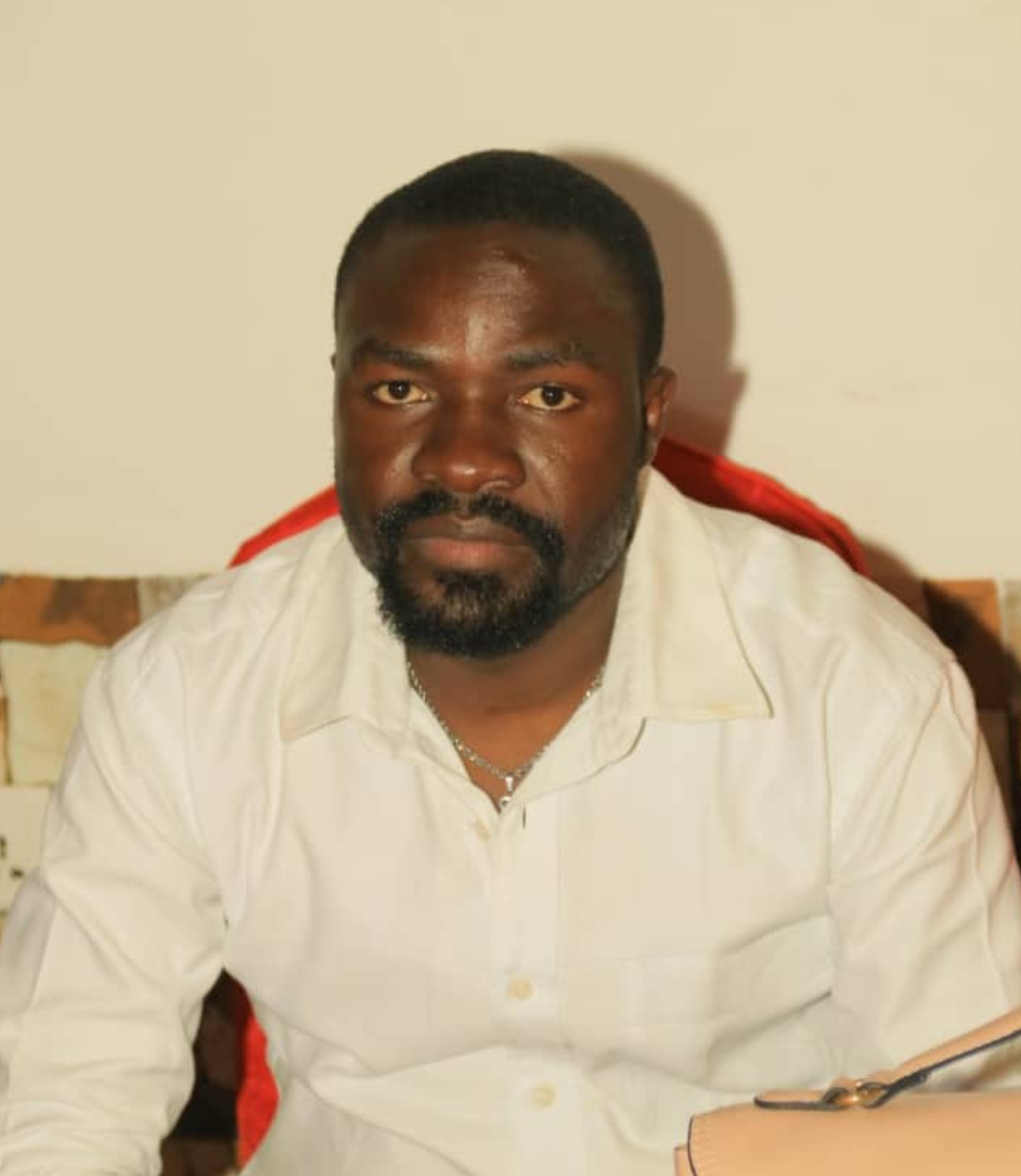
Roger Gakiza
Project Coordinator, iDove programme
News
More Stories from USHIRIKA
Goma: Reconciling Gender Equality with Peacebuilding, Two Local Rrganizations Take on the Challenge (en français)
Catch Up On USHIRIKA’s Project Activities
Avec l’organisati #CHRG, nous avons réuni à #Goma, des membres de diverses couches socio-culturelles autour de la réflexion critique sur l’amélioration du statut social et économique du genre pour les communautés locales en #RDC grâce à l’appui d’@iDove00https://t.co/kWemFuxTuL pic.twitter.com/AukV6ZjSTK
— Amani-Institute ASBL (@institute_amani) June 1, 2024
About iDove
The iDove program on Interfaith Dialogue and Prevention of Violent Extremism offers youth-driven, innovative solutions to prevent violence. Implemented by seven local organizations associated with iDovers—youth peacebuilders from Europe, Asia, and Africa—the program strengthens small-scale projects and supports broader iDover engagement. The Network for Religious and Traditional Peacemakers enhances these organizations’ capacity, ensuring timely, effective, youth-led responses to violence prevention. Visit the programme page.
Follow iDove on
social media

